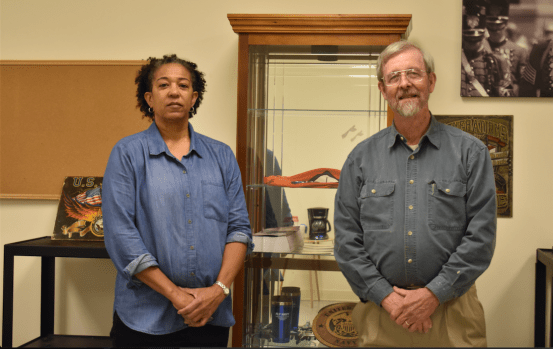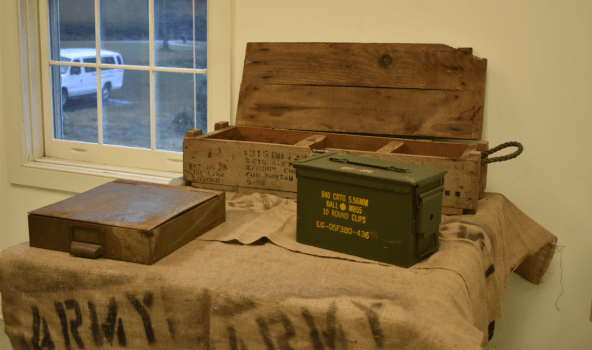Book shares veteran stories
Published 3:48 pm Tuesday, November 6, 2018
In June 1950, three friends from Wealthia (now called Dillwyn) enlisted in the U.S. Army.
Alfred R. Gregory, Leslie White and Herbert H. Logan would serve in the Korean War, and they all died in action.
Logan, who was Private First Class, was buried Dec. 29, 1951. Gregory and White, who were corporals, were killed in action May 23, 1951. The families of each men were given Purple Hearts.
White and Gregory were buried in a joint funeral Feb. 24, 1952. It would be the only joint funeral held at Baptist Union Baptist Church (BUBC) in Dillwyn’s 152- year history.
Two area veteran advocates are seeking to keep the memories of Logan, White and Gregory alive while also remembering the large number of veterans who currently attend BUBC.
Janice Johnson and Dr. Michael Lund have compiled the stories of various members of the congregation who have served in the Korean War, in the Vietnam War, and in various capacities in the United States Marine Corps, the U.S. Air Force and the United States Army, called “Serving God and Country: The Stories of Our Veterans.”
Johnson and Lund are veterans themselves. Johnson is a retired U.S. Army veteran and Lund was drafted into the Vietnam War. Lund currently leads the Home and Abroad writing program for military, veterans and family members.
Johnson, who attends BUBC at 125 Baptist Union Road in Dillwyn and who works for the Department of Defense, said the church has a high number of veteran members, including the pastor.
More than 20 veterans are currently buried at the church cemetery.
Johnson saw a storage room in the church, and an opportunity. She and the pastor suggested converting the storage room into a room that honors the veterans in the congregation. The room has memorabilia from service members, including equipment from Johnson’s brother, who served in the U.S. Army.
Johnson is also the chair of the church’s Veterans Recognition Ministry. The mission of the ministry, according to the book, is to “identify, acknowledge and make permanent record of the military service of veteran members (living and deceased) of BUBC and to provide outreach and education and fellowship to the veteran community and their families at BUBC and throughout Central Virginia.”
This ministry and Lund’s organization partnered to compile the stories of several living and deceased veterans into a book.
Lund said it was initially difficult for the veterans to share their experiences, as none of them seek out the spotlight.
“What struck me more was the authenticity of their stories,” Lund said. “They weren’t looking to be on the evening news, and they didn’t shape what they said to get more attention, they just knew what they’d done, understood why they did it, and were willing to share.”
“They had voices I really don’t find that often,” Lund said.
Johnson said the book allows for the voices of African-American veterans, a segment of the veteran population not often heard, to come to the forefront.
“This is a group of people who are typically disenfranchised. Their voices, particularly around the Korean War, … weren’t heard,” Johnson said. “They weren’t sought out, and so they weren’t heard. So Lund saw the opportunity to put these things together that I think worked out nicely.”
“The stories in this book are only a small portion of these veterans’ experiences, just a snapshot in time,” Johnson said. “I think if you had the opportunity to get them together and have them tell more, you would get a fuller picture of what their lives were like before the military, during and after.”
Johnson and Lund said the book has not had the opportunity to circulate outside of the church, but that the book has generated a lot of conversation both within the congregation and out into the surrounding community.
Johnson said she hopes the book will generate insight for young people and members of the community to understand what wartime was like for members of the African-American community and the importance of honoring all veterans.
“Not just a certain group of people contributed to the events of this country,” Johnson said. “Not just city people. Not just poor people, but people who didn’t have equal voice in the conversation about how things were going in this country. They fought and died too. They left their families too. And when they came back, they came back to similar circumstances that they were in before they left. … Everyone had a part. Everyone had a story. Everybody’s story is important.”







